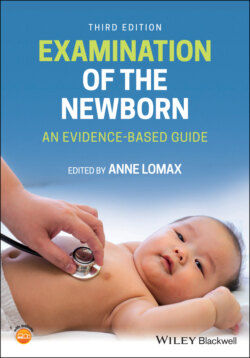Читать книгу Examination of the Newborn - Группа авторов - Страница 13
Political drivers for examination of the newborn – past and present
ОглавлениеIn 2004, the Department of Health published the National Service Framework for Children, Young People and Maternity Services (DH 2004). This highlighted that high‐quali maternity care can ensure a healthy start for the baby and help parents become skilled in parenting. The document set out a 10‐year programme for improvement. Other government initiatives have provided the platform for changes in the way National Health Service (NHS) staff work, to reduce waiting times and deliver modern patient‐centred care. These initiatives include the following: European Working Time Directive (DH 2002), the NHS Changing Workforce Programme (DH 2003) and, more recently, the NHS Long Term Plan (DH 2019). The resulting reduction in junior doctors’ hours has contributed to the need for different ways of working to provide maternity care, in particular that team midwifery and more specialised services may need to be concentrated in fewer facilities.
The Royal College of Obstetricians and Gynaecologists (RCOG) and the National Institute for Health and Care Excellence (NICE) have provided expert clinical guidance on all aspects of provision of maternity care (NICE 2015; RCOG 2016). Alongside this is the recognition that midwifery services will need to be strengthened in the community, which, it could be said, is the most appropriate setting for straightforward low‐risk women (DH 2019).
A change in professional boundaries has been inevitable, and midwives have undertaken additional training to enhance their midwifery role (DH 2000). With regard to examination of the newborn, many midwives view this as a natural extension of their traditional role (Lomax and Evans 2005).
A growing body of evidence suggests that midwives are ideal candidates to undertake this enhanced training; however, the literature does indicate that a practitioner who is adequately trained, experienced, skilled and competent is more important than professional background; also that the standard quality and content of the examination should be consistent throughout the United Kingdom (Wolke et al. 2002a; 2002b; Townsend et al. 2004; Williamson et al. 2005; Hall and Elliman 2006; Rogers et al. 2015).
